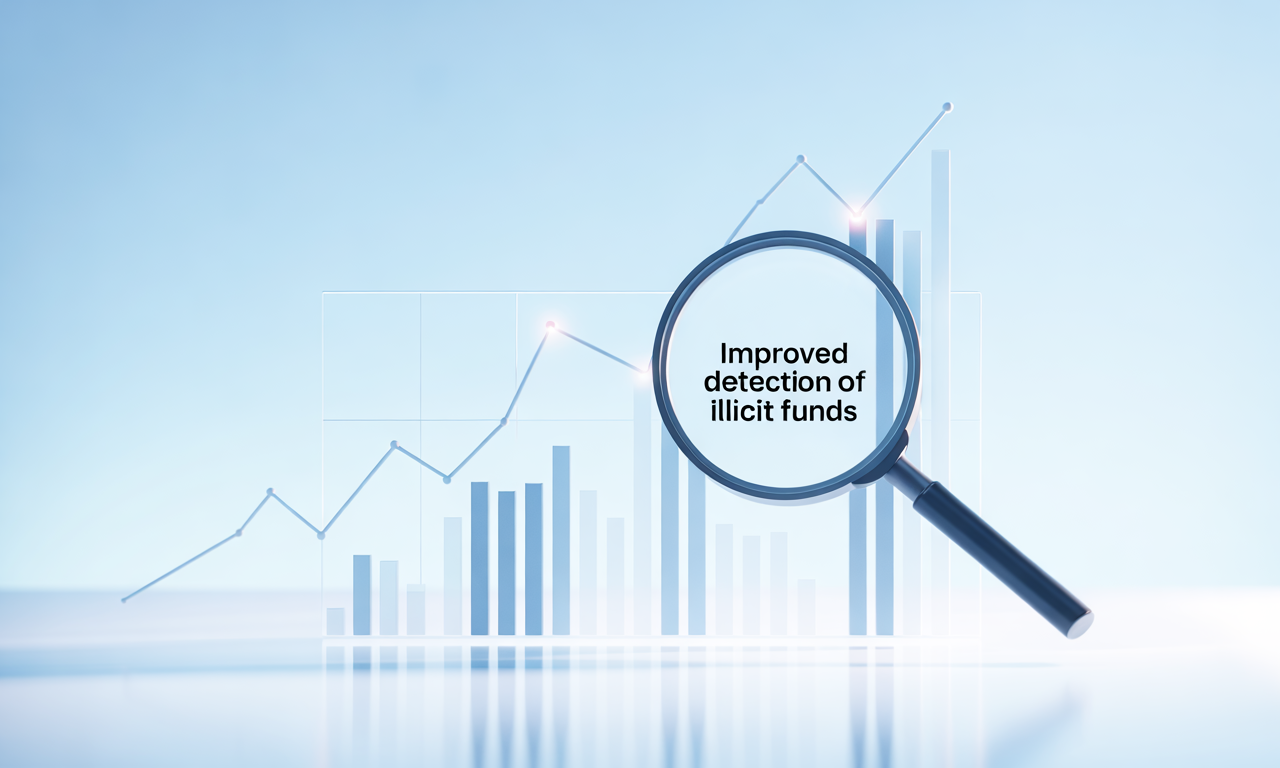The Financial Enforcement Centre (FEC) is a collaborative initiative that brings together multiple public-sector authorities along with private-sector partners to preserve and strengthen the integrity of the Netherlands’ financial system. Through a mix of preventive strategies and enforcement actions, FEC aims to curb illicit money flows, combat financial crime, and foster trust and transparency in the financial sector.

We work as one cohesive authority, bringing together diverse expertise to set and enforce financial standards.

Our core mission is to actively combat and prevent financial crimes, safeguarding the integrity of the financial system.

We address unethical behaviour within the financial sector, fostering transparency and building trust for all stakeholders.

The FEC is a purpose-built partnership of public authorities with supervisory, monitoring, investigative or prosecutorial responsibilities to uphold the integrity of the Dutch financial system. Its mandate is to apply both preventive and active measures to guard against financial threats — including money laundering, fraud, and other forms of financial crime or misconduct. By acting jointly, partners aim to reduce the risk of illicit money flow and deter wrongdoing.

Beyond enforcement, the FEC serves as a central hub for information exchange and expertise sharing among its members and observers. This collaborative model allows the pooling of insights, skills, and data — enabling a comprehensive overview of emerging risks, trends, and warning signs in the financial sector. Through this information sharing, FEC enhances its ability to detect suspicious patterns early and to coordinate responses across different agencies, combining regulatory, supervisory, and law-enforcement capabilities.


At its core, FEC works to reinforce the integrity of the financial system by reducing illicit fund flows and actively combating unethical or criminal practices in the financial sector. This involves identifying suspicious activities, analyzing risks, and coordinating enforcement or preventative measures across its partner agencies.
fec-org.nl
By combining the powers and expertise of its various members, FEC aims to be both proactive and reactive not only responding to known crimes, but also identifying and preventing new threats before they materialize.
At its core, FEC works to reinforce the integrity of the financial system by reducing illicit fund flows and actively combating unethical or criminal practices in the financial sector. This involves identifying suspicious activities, analyzing risks, and coordinating enforcement or preventative measures across its partner agencies.
fec-org.nl
By combining the powers and expertise of its various members, FEC aims to be both proactive and reactive — not only responding to known crimes, but also identifying and preventing new threats before they materialize.
To realize this mission, the FEC carries out three key tasks: structural information exchange, knowledge sharing via the Knowledge Centre, and joint implementation of programmes, projects, and task forces.
The FEC comprises seven public-sector partners, each acting within the bounds of their legal mandates:
Dutch Authority for the Financial Markets (AFM)
De Nederlandsche Bank (DNB)
Tax and Customs Administration
Fiscal Intelligence and Investigation Service (FIOD)
Financial Intelligence Unit Netherlands (FIU-NL) Public Prosecutor's Office (OM) National Police (NP)
Beyond its public-sector foundation, FEC engages with private-sector stakeholders — notably major banks and financial institutions — to reinforce its detection and prevention capabilities. This public-private cooperation is a vital complement to regulatory and enforcement efforts, enabling a more holistic defense against financial crime.
Through these partnerships, FEC and private institutions jointly strengthen their knowledge base, develop targeted risk-indicators, enhance transaction monitoring, and facilitate early detection of suspicious financial flows. This cooperation enhances the effectiveness of prevention and supports the gate-keeping role of banks and financial intermediaries.

By engaging with private-sector partners, the FEC significantly strengthens its collective knowledge base regarding financial crime and prevention strategies.

These partnerships are crucial for improving the detection capabilities of criminal money flows both within and through the Netherlands' financial system.

Collaboration facilitates the early detection of suspicious activity, allowing for swift action and mitigation of potential financial threats.

Joint development of targeted indicators enables a more precise and effective identification of illicit financial activities and patterns.
Key private-sector partners include: ABN AMRO, ING, De Volksbank, Rabobank, and The Dutch Banking Association (NVB).

Part of FEC’s operational model is the task-force structure one of which is the Serious Crime Task Force (SCTF). This task force includes both public authorities and private-sector partners, and focuses on combating organized crime by targeting facilitators who misuse the financial system for example, through laundering money or hiding criminal proceeds.
Through joint monitoring and intelligence exchange, SCTF helps identify suspicious transactions or patterns that may indicate illicit activity. Once signals are detected, these are investigated and, where appropriate, escalated to the relevant enforcement agencies, balancing prevention and prosecution efforts.

Another key component is the Terrorist Financing Task Force (TFTF), which is dedicated to detecting and preventing financial flows that may support terrorism. Established under FEC’s framework, the TFTF facilitates collaboration between authorities and — where legally permitted — private institutions, to monitor, analyze and respond to suspicious financial activity connected to terrorist financing.
By developing typologies, risk indicators, and intervention strategies, the TFTF helps strengthen the financial system’s resilience against financing of terrorism. This cooperative approach has gained recognition as a model for effective public-private collaboration in counter-terrorist financing.
Central to FEC’s work is its secure information platform, which enables partners to share signals, data and analyses regarding potential integrity issues or suspicious activity. This facilitates real-time or near-real-time collaboration and enables rapid, coordinated response when threats or red flags emerge.
The structure ensures that information exchange is conducted within legally defined frameworks guarding privacy and data protection, while enabling effective joint action against financial crime.

Our Knowledge Centre facilitates the exchange and development of expertise, supporting joint public-private projects and international engagement. It includes the FEC Privacy Platform, ensuring secure and legally compliant data handling.

FECademies are dynamic knowledge-sharing events, often partnered with FIOD's Trends4FI. These events bring together public and private partners, promoting critical insights and cross-sector learning on both national and international scales.

Our Knowledge Centre facilitates the exchange and development of expertise, supporting joint public-private projects and international engagement. It includes the FEC Privacy Platform, ensuring secure and legally compliant data handling.

FECademies are dynamic knowledge-sharing events, often partnered with FIOD's Trends4FI. These events bring together public and private partners, promoting critical insights and cross-sector learning on both national and international scales.
“Working together as one authority to combat financial crime and unethical behaviour in the financial sector.”
The Financial Enforcement Centre (FEC) is a collaborative initiative between public authorities with supervisory, enforcement, investigative, or prosecutorial responsibilities in the financial sector. The FEC was established to uphold and strengthen the integrity of the financial system in the Netherlands. It achieves this through both preventive and active measures targeting threats to that integrity.
In addition, the FEC plays a crucial role in information dissemination and knowledge sharing. By pooling insights, skills, and expertise from its partners and observers, the FEC ensures a coordinated, effective, and efficient approach. This joint effort enables a focused response to systemic issues with wide-reaching impact.
The Financial Enforcement Centre (FEC) is a collaborative initiative between public authorities with supervisory, enforcement, investigative, or prosecutorial responsibilities in the financial sector. The FEC was established to uphold and strengthen the integrity of the financial system in the Netherlands. It achieves this through both preventive and active measures targeting threats to that integrity.
In addition, the FEC plays a crucial role in information dissemination and knowledge sharing. By pooling insights, skills, and expertise from its partners and observers, the FEC ensures a coordinated, effective, and efficient approach. This joint effort enables a focused response to systemic issues with wide-reaching impact.

The FEC’s core objective is to reinforce the integrity of the financial system by reducing the flow of illicit funds within and through the Netherlands. It actively combats financial crime and unethical practices within the sector.
The FEC’s mission is to fortify the financial system by facilitating the exchange of information, knowledge, and expertise, primarily within the public sector, and increasingly through public-private cooperation.
To realise this mission, the FEC carries out three key tasks:
Structural information exchange
Knowledge sharing via the Knowledge Centre
Joint implementation of programmes, projects, and task forces
The FEC operates through a dual structure: the FEC Council and the FEC Unit, as established by the 2014 FEC Covenant. Supporting structures include the FEC Contact Group, the FEC Privacy Platform, and the FEC Task Force Analysis Team, all of which are critical to the Centre’s operation.
The FEC comprises seven public-sector partners, each acting within the bounds of their legal mandates:
Dutch Authority for the Financial Markets (AFM)
Tax and Customs Administration (Belastingdienst)
De Nederlandsche Bank (DNB)
Financial Intelligence Unit Netherlands (FIU-NL)
Fiscal Intelligence and Investigation Service (FIOD)
Public Prosecutor’s Office (OM)
National Police (NP)
The Ministry of Finance and the Ministry of Security and Justice participate as observers.
The FEC also engages private-sector stakeholders to strengthen knowledge and improve detection of criminal money flows. Collaborations under the Serious Crime Task Force and Terrorist Financing Task Force exemplify this effort.
ABN AMRO
ING
De Volksbank
Rabobank
The Dutch Banking Association (NVB)
These partnerships allow early detection of suspicious activity through the development of targeted indicators.
The FEC’s information platform enables continuous exchange of intelligence on financial integrity risks. Signals about individuals or entities potentially involved in malpractices are shared among the partners, especially within dedicated task forces.
This process operates under strict legal frameworks established by the 2014 FEC Covenant and the 2019 Information Protocol, ensuring responsible information sharing and mutual consultation.
Launched in 2019, this task force includes both public and private stakeholders. It targets facilitators of organised crime and enhances banks’ monitoring capabilities, producing actionable intelligence and enabling pre-emptive interventions.
Formed in 2017 and formalised in 2019, the TFTF supports collaboration to combat terrorist financing. It is chaired by the Public Prosecutor’s Office. By facilitating data exchange under existing legal boundaries, the task force has become a model for international cooperation, as recognised by the FATF.
The FEC facilitates the exchange and development of expertise through its Knowledge Centre, supporting joint public-private projects and international engagement. This also includes the FEC Privacy Platform, which ensures legal compliance in data handling.
These knowledge-sharing events, often organised in partnership with the FIOD’s Trends4FI, bring together public and private partners. They are typically digital and serve to promote insights and cross-sector learning, both nationally and internationally.
The FEC undertakes a wide array of joint projects designed to produce concrete, actionable results. Examples include:
Combating illegal trust services
Exploring money laundering via investment firms
Addressing risks associated with payment service providers
Investigating dividend stripping practices
Ensuring crypto service provider compliance
Tackling money laundering in the automotive sector
Disrupting financial flows related to synthetic drugs
Preventing abuse of foundation legal entities
Strengthening corruption detection by banks
Combating exploitation-related money laundering
This programme identifies and analyses the financial networks of individuals and entities potentially linked to terrorism. It produces risk profiles, generates tested typologies, and informs targeted intervention strategies, improving the sector’s ability to detect and respond to threats.
The FEC was created following the 1997 Financial Sector Integrity Memorandum, initiated by the Ministers of Finance and Justice and the State Secretary of Finance.
To improve engagement, the FEC was restructured and the FEC Council was introduced. Oversight moved from the Ministry of Finance to the AFM.
Following an evaluation, the FEC improved its operational collaboration. From January 2009, De Nederlandsche Bank (DNB) assumed responsibility for its overall management.
The Financial Enforcement Centre (FEC) is comprised of the FEC Council and the FEC Unit, as formalised in the FEC Covenant of 2014. In addition to these, several key organisational structures—though not outlined in the Covenant—play vital roles in supporting the FEC’s operations. These include the FEC Contact Network, the FEC Privacy Platform, the FEC Information Platform, and the FEC-TF Analysis Team.
Within the FEC, public authorities—referred to as partners—collaborate based on their own legal powers and responsibilities, specifically in relation to upholding the integrity of the financial system. The FEC partnership includes the following eight public-sector entities:
The Netherlands Authority for the Financial Markets (AFM)
The Tax and Customs Administration (Belastingdienst)
The Financial Supervision Office (BFT)
The Dutch Central Bank (DNB)
The Financial Intelligence Unit – Netherlands (FIU-NL)
The Fiscal Intelligence and Investigation Service (FIOD)
The Public Prosecution Service (OM)
The National Police
The Ministry of Finance and the Ministry of Justice and Security are involved as observers.
The FEC also collaborates with key private-sector entities, including:
ABN AMRO
ING
Rabobank
De Volksbank
The Dutch Banking Association (NVB), representing the banking sector
The FEC Unit operates on behalf of and under the authority of the Financial Enforcement Centre (FEC) partners. It is composed of professionals who are seconded from these partner organisations. Each team member remains officially employed by their respective home organisation but works at the FEC for a set term—typically two periods of two years.
Are you employed by one of our partner organisations or observers and interested in contributing to the integrity of the financial sector through a secondment to the Financial Enforcement Centre?
We encourage you to express your interest and regularly check this site for upcoming vacancy announcements.
Lorem ipsum dolor sit amet, consectetur adipiscing elit. Ut elit tellus, luctus nec ullamcorper mattis, pulvinar dapibus leo.